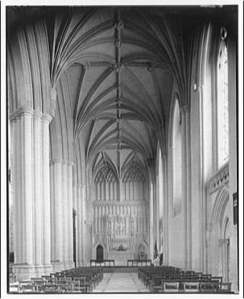Authors Note: This is the fourth and last post in a short series on The Augustine and Pelagian Controversy. You can read the first post here, the second post here and the third post here.
Grace
This section is a continuation the yesterday’s post The Augustine and Pelagian Controversy: Augustine.
Augustine begins his doctrine of grace with the notion that man is in need of grace because of original sin. Augustine argues that men are partakers of sin in Adam; God created man to be perfect and with free will.[1] Adam was given grace to be able keep his uprightness by choosing good, but instead he used his free will and disobeyed. By this act, all of humanity is guilty of Adam’s sin.
Grace is help from God to be able to obey Him. Grace consists of all external help from God for salvation, such as the law, preaching, and Christ’s example. However, it also includes forgiveness of sin. Above all, grace is the help that God gives the believer by the Holy Spirit working within where we are given the power to obey. Within this help is regeneration, justification, and perseverance. Warfield puts it like this, “[I]n a word, all the divine assistance by which, in being made Christians, we are made to differ from other men.”[2]
At the time of Augustine’s death, he asked to have Psalm 51 written on sheets of paper and hung around his room so that he could read them as he lay dying. In his last days he asked for absolute privacy, and he prayed and wept for ten days before he died. Augustine loved God, and that ability to love God came from the Holy Spirit with His gift of grace.
Conclusion
Out of the Augustine and Pelagian controversy we have received many documents on the different doctrines of the church, but none so important as the doctrine of grace. From Augustine’s theology of grace, Martin Luther, the great reformer, and John Calvin, constructed their doctrines of grace. In many corners of Christianity, the church today subscribes to this doctrine, the doctrine of grace, that was used to argue against the notion that men can choose to be saved or to do good without the help of divine grace.
The author of Ecclesiastics says truthfully that there is nothing new under the sun (Ecclesiastics 1:9). Pelagius was annoyed with a laxity in Christian standards that he saw in the church and communities in Rome. Today in the modern church there is a laxity as Christians seem to be asleep at the wheel. In the modern church we can very easily see why Pelagius took up his erroneous doctrines. The frustration with laxity to sin is real in the modern church, but the question remains as to where Pelagius found support for his doctrines in Scripture.
Augustine took up the banner of truth and led the way against the Pelagian heresy, although he refused to call it that in the beginning. He argued against Pelagius with a desire for him to repent of his error and to return to the truth of Scripture. Augustine resisted for a long time not to call Pelagius and his followers heretics, but towards the end of the controversy he could not continue to deny the obvious. Pelagius was condemned by the Bishop of Rome and banished from Rome, but his doctrines lived on and morphed into semi-Pelagianism. We can still find traces of semi-Pelagianism in Christianity today.
[1]Aurelius Augustine. “On Rebuke and Grace.” In Nicene And Post-Nicene Fathers, Volume 5: Augustine: Anti-Pelagian Writings, edited by Philip Schaff, 468-493. Peabody, MA: Hendrickson Publishers, Inc., 2004, 483.
[2] B.B. Warfield. “Introductory Essay On Augustine And The Pelagian Controversy.” In Nicene And Post-Nicene Fathers, Volume 5: Augustine: Anti-Pelagian Writings, edited by Philip Schaff, xiii-lxxi. Peabody, MA: Hendrickson Publishers, Inc., 2004, lix.



Reblogged this on Talmidimblogging.